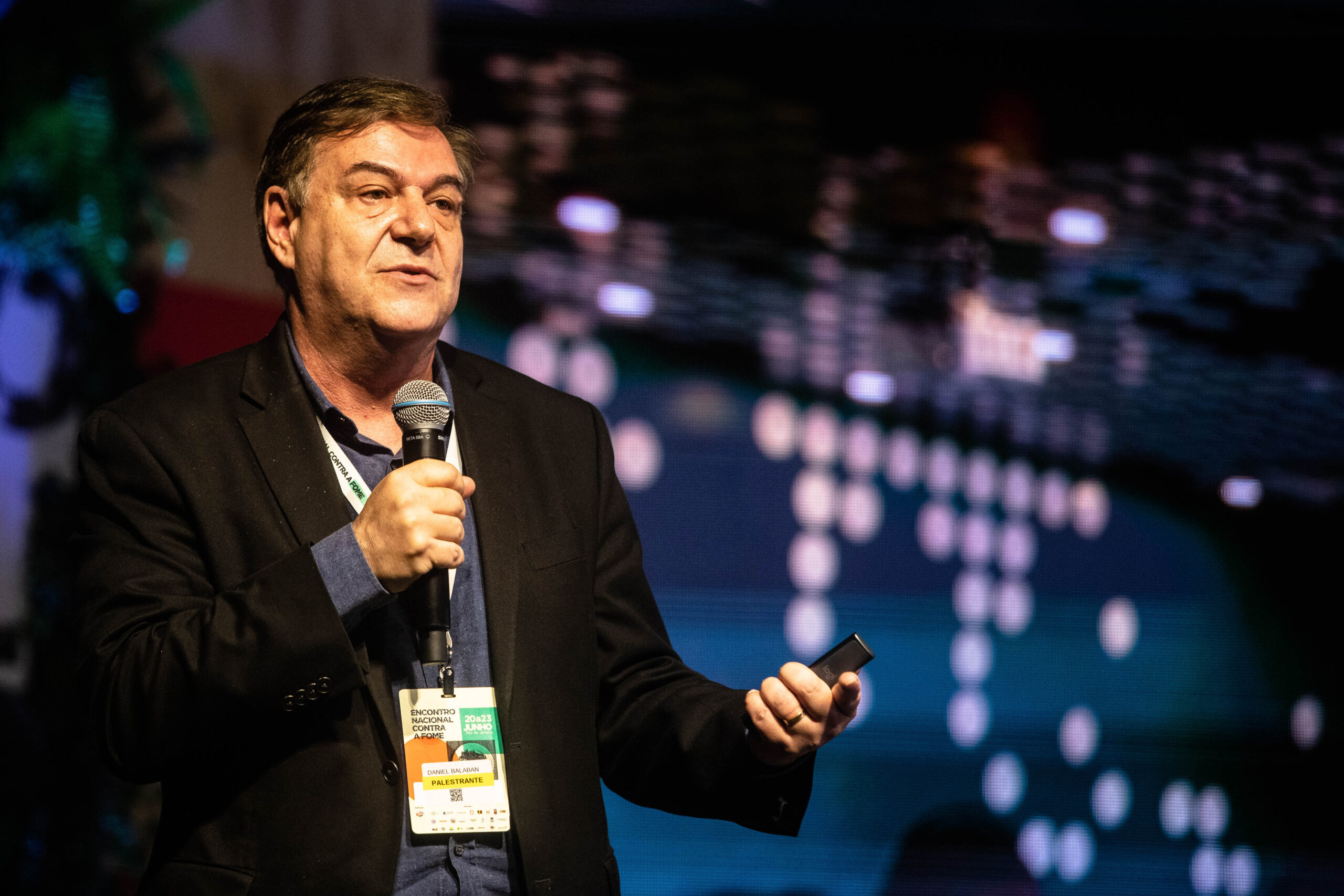
On Wednesday, June 22, experts from the Centre of Excellence against Hunger of the United Nations World Food Programme (WFP) in Brazil, the United Nations Food and Agriculture Organization (FAO), UNICEF and the UN Global Compact were part of the panel “Sustainable Development Goals and Food Security”, as part of the National Meeting Against Hunger. The Meeting is organized by the NGO Ação da Cidadania and by several entities that work with food security and debate solutions to stop the increase of hunger in Brazil.
During the panel, the experts focused on the Sustainable Development Goal (SDG) 2, which seeks to end hunger, achieve food security and better nutrition, and promote sustainable agriculture; and on SDG 17, strengthening the means of implementation and revitalization of global partnerships for sustainable development.

Daniel Balaban, Director of the WFP Centre of Excellence against Hunger Brazil, started the presentations detailing the work of WFP in the world and the activities of the Centre in Brazil. He highlighted that, in the world, the WFP serves several people in conflict situations, adverse climate crises, among other drivers of hunger. “Unfortunately, the work is not enough. We serve about 130 million people, but we have more than 800 million people going hungry now around the planet,” Daniel Balaban pointed out.
Another factor raised by the Director as aggravating hunger on the planet were wars and armed conflicts, which, according to the Stockholm International Peace Research Institute (SIPRI), will consume 2.2% of the world’s GDP in 2021, which represents approximately $2 trillion. The figure is equivalent to about 40 times WFP’s annual budget for bringing food assistance to over 120 countries. For the Director, ending poverty and hunger in the world requires investments in well-organized food systems and the creation of broad-based school feeding programs. “It is possible to make hunger a chapter of the past,” he said.
According to the FAO representative in Brazil, Rafael Zavala, armed conflict brings several negative consequences to the fight against hunger in the world and represents the cause of food insecurity for 139.1 million people. The war involving Ukraine and Russia, for example, has brought logistical disruption and an increase in the price of energy, gas, oil and fertilizers, since Ukraine, Russia and Belarus produce about 40% of the fertilizers used in the world. “The armed conflict of Russia versus Ukraine is not only an armed conflict, it is an armed conflict between two agricultural potencies,” he stressed.
According to FAO, between 2016 and 2021, the population in crisis had an increase of about 80% in the world, going from 108 million people to 193 million. According to Rafael Zavala, the combination of four causes leads to the growth of food insecurity and hunger in the world: armed conflict, economic crisis, climate crisis and sanitary crisis. For him, as for Daniel Balaban, confronting this scenario involves rethinking food systems, changing paradigms, and ensuring the continuity of school feeding programs, such as PNAE, the school feeding programme in Brazil.
The new food system should be integral and focus mainly on nutrition per unit of inputs and resources, where the protagonists are consumers and civil society. It is also important that in these new systems emerging economies play an increasingly important role and that gender issues are at the centre of planning and execution.
In the same panel, Luciana Phebo, coordinator of the Southeast Territory and head of UNICEF’s Rio de Janeiro office, talked about the importance of adequate nutrition in early childhood. “One of the paths, perhaps one of the most strategic paths [to end hunger in the world], is to bet on early childhood,” she said.
In 2021, the organization conducted a study called “Nutrition in Early Childhood,” for which interviews were conducted with 1,343 caregivers of 1,647 children under 6 years old supported by the Bolsa Família programme in 21 Brazilian states. The survey revealed that 80% of the children had consumed ultra-processed food the day before the survey, and 72% of the caregivers said that some children had skipped a meal. The most consumed ultra-processed foods were cookies and sugary drinks. According to Luciana, “there is a food desert near the houses and homes of the most vulnerable families, not only in urban centres, but also in rural areas, in indigenous, riverine, and quilombola populations.”
Tayná Leite, Senior Manager of Human Rights and Gender of the UN Global Compact in Brazil, highlighted the role of companies in the implementation of the Sustainable Development Goals established by the 2030 Agenda. “There is no other business more valuable than the sustainability of our planet and the dignified lives of those who live here,” said the manager.
She also considers diversity and inclusion fundamental in this process, to achieve more effective solutions to current problems, already seen in some indigenous, traditional, and quilombola communities. “Diversity and inclusion are essential so that we can have different voices bringing us these perspectives and new solutions to old problems,” she concluded.
The full panel is available on the Ação da Cidadania YouTube channel.




